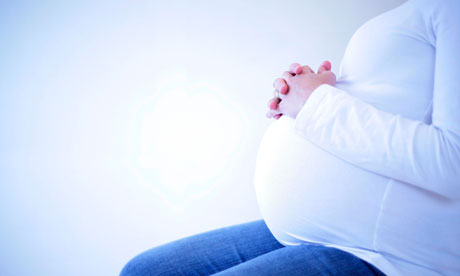
Advice that pregnant women should "play it safe" by avoiding chemicals found in food packaging, household products, over-the-counter medicines and cosmetics has been criticised as confusing and impractical.
The guidance from the Royal College of Obstetricians and Gynaecologists concedes that links between chemicals used in such products may be unproven but goes on to suggest ways mothers-to-be and breast-feeding mothers could take a "safety-first" approach.
Adverse health effects apparently associated with the chemicals include pre-term birth, low birth weight, congenital defects and impairment of fertility later in life. The paper says: "Under normal lifestyle and dietary conditions, the level of exposure of most women to individual environmental chemicals will probably pose minimal risk to the developing fetus/baby.
"However, women who are pregnant are exposed to hundreds of chemicals at a low level. Potentially, this exposure could operate additively or interactively and raises the possibility of 'mixtures' effects. On present evidence, it is impossible to assess the risk, if any, of such exposures. Obtaining more definitive guidance is likely to take many years; there is considerable uncertainty about the risks of chemical exposure."
Suggested measures to reduce overall chemical exposure include eating and storing less food in cans or plastic containers, not using gardening, household and pet pesticides and taking over-the-counter analgesics or painkillers only when necessary. The safety of products should not be assumed simply by the absence of "harmful" chemicals in ingredients lists or because products are labelled natural or herbal.
The paper adds: "It is unlikely that any of these are truly harmful for most babies, but in view of current uncertainty about risks, especially those related to 'mixtures', these steps will reduce environmental chemical exposures."
Michelle Bellingham of the Institute of Biodiversity, Animal Health and Comparative Medicine at Glasgow University, and a co-author of the paper, told the BBC: "We are trying to empower women, not scare them. There is a void at the moment in terms of information about chemicals."
But others criticised the advice. Tracey Brown, of Sense About Science, told the BBC: "There are products and websites and diets and all sorts of things offering pregnant women advice about what to avoid and dangers they face and we get calls in our office every week from people asking: 'Is there any truth behind this?' and very confused," she explained.
"Making advice up on the fly really undermines the kind of very careful, evidence-driven advice that is given," she said.
Alastair Hay, professor of environmental toxicology at Leeds University, said: "There is no evidence that I am aware of that particular claims addressed in this paper are associated with clear risks … The way it is formulated suggests you are reducing a risk that is uncertain … and I think if women feel they should not be using moisturisers as regularly as they might have been, if someone has a dry skin, I think that is really unhelpful."
Chris Flower of the Cosmetic, Toiletry and Perfumery Association said a full safety assessment of every cosmetic product and its ingredients was undertaken before a product could go on the market and, by law, all of the ingredients in a cosmetic product had to be listed on its packaging.

